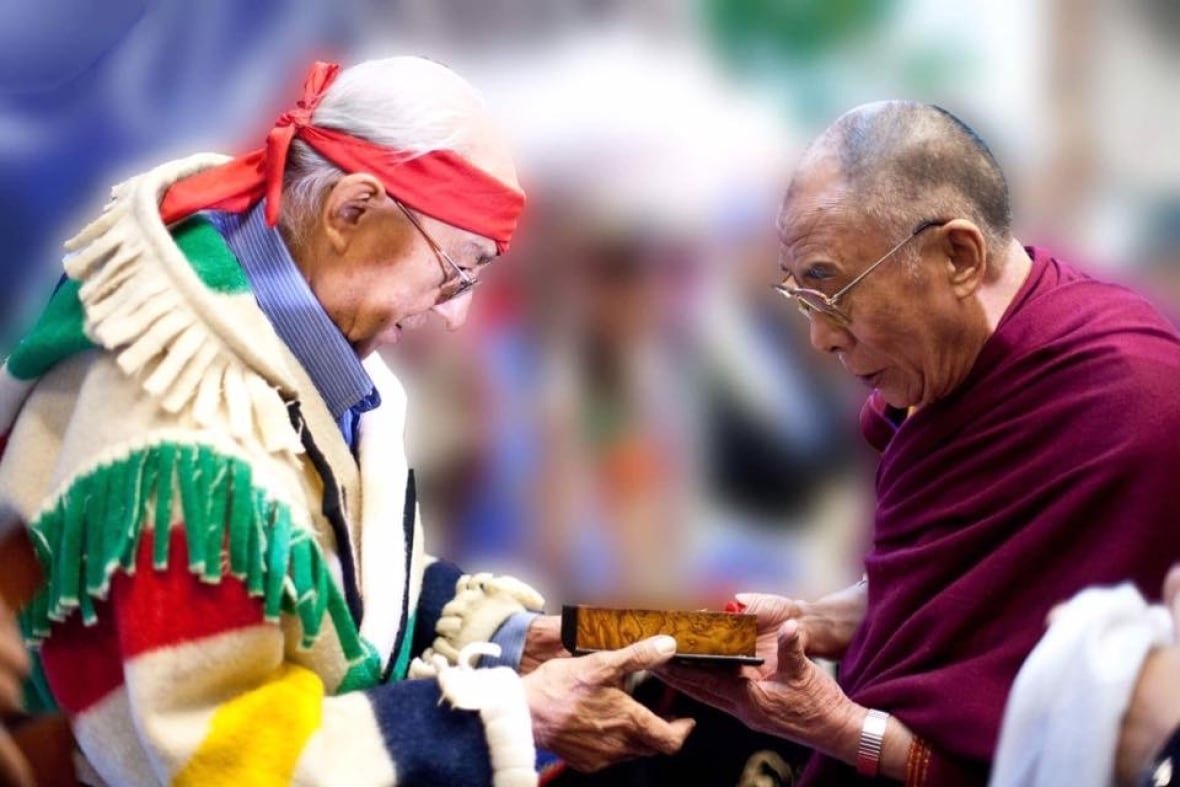With the Hudson’s Bay Company filing for creditor protection, some Indigenous people are reflecting on their relationship with the company whose history is tied to colonization in Canada.
Fashion designer Stephanie Eagletail, from Tsuut’ina First Nation in southern Alberta, said she disliked the Hudson’s Bay Company because of that.
But after finding her grandfather’s collection of capotes — jackets made with wool blankets — she started to incorporate the company’s iconic point blankets into her designs.
“I always asked him, “why do you wear a Hudson’s Bay coat, after everything they’ve put our people through?” said Eagletail.
“He said, ‘to show them that we’re still here, that we survived … a genocide.'”
Point blankets were an important trade item in the early years of the company. They were seen as a form of currency, and were often used to construct jackets, also known as capotes.
Stories exist within Indigenous communities that smallpox was spread by blankets from the company, but that has never been proven by historians.
Amelia Fay, curator of the HBC Museum Collection at the Manitoba Museum in Winnipeg, says the mere fact the company’s trading posts brought European fur traders in contact with Indigenous communities was enough to spread smallpox.
“Encounters with Europeans did spread smallpox, so it wasn’t necessarily through the blankets,” said Fay.
Eagletail said when she makes her clothing using material from the wool blankets, she gets a kick out of cutting up the blanket and using them to make something that speaks to her culture and her family history.

“For me, it’s a form of decolonization and reclaiming my identity, like my late grandfather had mentioned, showing that we’re still here today.”
In 2022, the Bay and the Chanie Wenjack Foundation launched the Blanket Fund, through which proceeds from the sale of the point blankets went to fund Indigenous cultural, artistic, and educational activities.
Going forward, Eagletail hopes that the Blanket Fund can continue.
The Hudson Bay company formed in 1670

